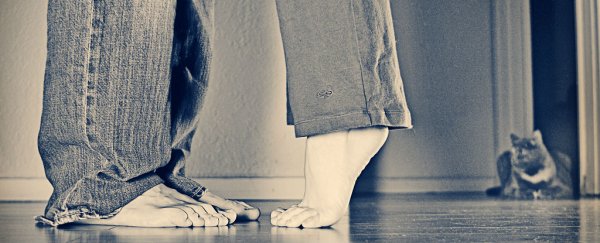The emotional benefits of living together are broadly the same whether or not a couple is married, a new study has found. While back in the 1990s, research identified an emotional boost in couples that went from living together to getting married, now - less than three decades later - that difference is barely noticeable.
"At one time marriage may have been seen as the only way for young couples to get the social support and companionship that is important for emotional health," said one of the team, Claire Kamp Dush from Ohio State University. "It's not that way anymore. We're finding that marriage isn't necessary to reap the benefits of living together, at least when it comes to emotional health."
While no difference was found in married or de facto couples who were living together, the data showed some differences between first and second relationships. For men in their first serious relationship, the emotional boost was greater after marriage than it was after the couple decided to live together. For women, on the other hand, the emotional boost was about the same after moving in with their partner and after marrying them.
By the second serious relationship, that variation disappears - both men and women received similar emotional boosts whether they moved in with their second partner or got married to them. "The young people in our study may be selecting better partners for themselves the second time around, which is why they are seeing a drop in emotional distress," Kamp Dush said.
The study looked at survey responses from 8,700 people who were asked to assess their level of 'emotional distress' (including feeling "downhearted and blue") through questionnaires filled out over the course of 10 years.
"It appears that young people, especially women, get the same emotional boost from moving in together as they do from going directly to marriage," said study co-author Sara Mernitz. "There's no additional boost from getting married."
The results have been published in the Journal of Family Psychology.
The researchers think the gender discrepancy spotted in first relationships could be due to differing attitudes towards co-habiting - the theory is that men are more likely than women to use living together as a way to test a relationship. What's more, emotional indicators might not be as useful in assessing overall health in men as they are in women. The team also says there could be additional benefits to marriage that aren't covered by the data in this study.
Having a child was another factor that significantly reduced levels of emotional distress in both partners - a finding that may seem surprising, given the strain a new baby can place on a couple.
